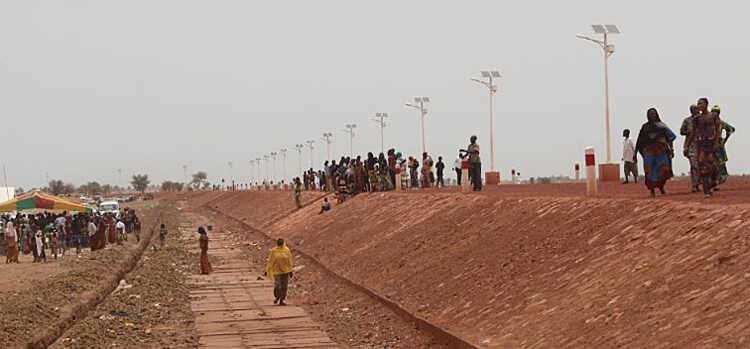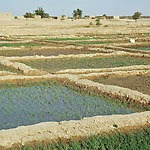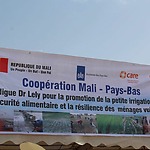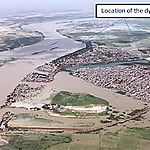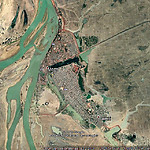The water level in the river varies by a few metres during the dry and rainy seasons. Since the area is relatively flat, a large inland delta has formed in the south of Mali. Inland deltas are not located at the mouth of a river, but somewhere upstream when the river flows through a relatively flat area. In the case of the Niger River, large parts of this inland delta are flooded during the wet season.
fter a few small traditional land reclamations, the Government of Mali started a program in the 1980s to create 120,000 hectares of rice polders in the inland delta, of which approximately 55,000 hectares in the Mopti area. For realization the State Projects Service Operation Riz Mopti (ORM) was established in 1972 to develop and exploit various rice polders in the inland delta of the Niger. The activities of this organization include, in addition to the creation of new polders and allocation of land to farmers, the exploitation, management and maintenance of both the new and the existing polders, the production and distribution of selected seeds, and the provision of credit and extension services. In this context, among other things, with financing from the World Bank, seven polders with a total rice cultivation area of 21,800 hectares were developed, five polders with a rice cultivation area of 18,000 hectares were renovated and a number of related projects were implemented, including the supply of agricultural machinery and technical assistance to ORM.
The city of Mopti is located more or less halfway along the inland delta. Large parts of this city were flooded every year. In order to improve the situation, at the request of the regional government with the support of Dutch development cooperation, a 4.1 kilometres long dike was built on the eastern side of the city. This dike also made it possible to open up the eastern part of the city. The design of the dike started in August 2014 and construction was completed in March 2016. The design and construction were led by CARE International in Mali in close cooperation with the regional government in Mopti.
At least 2,000 households in Mopti, as well as a rice-growing area of 300 hectares, are now protected against flooding from the Niger River. In the presence of two Malian ministers and the Dutch ambassador, a festive inauguration took place on 4 June 2016. As a token of gratitude, the dike was named after the founder of the Zuiderzee Project in the Netherlands, Dr Cornelis Lely.
